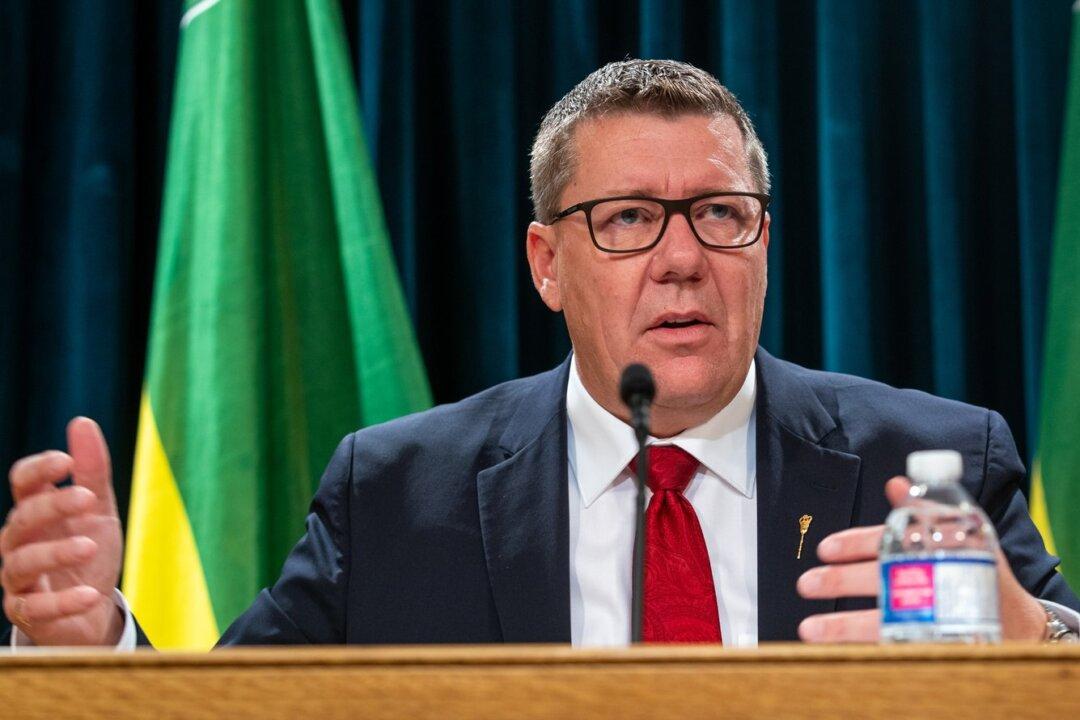Saskatchewan Premier Scott Moe says the province is to stop collecting the federal carbon levy on electric heat starting Jan. 1.
Mr. Moe told reporters on Nov. 30 that many people in northern Saskatchewan use electricity to heat their homes, and they should be exempt from paying the price.





